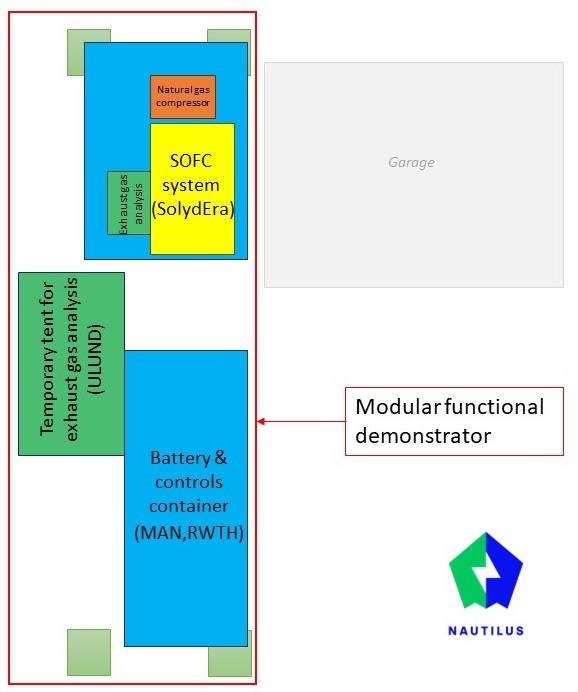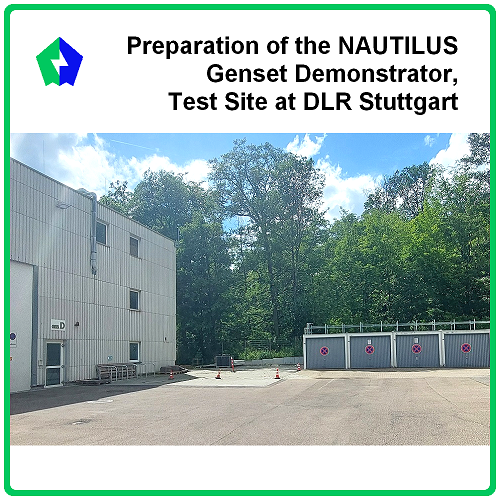The consortium of the NAUTILUS project is developing a pilot marine Genset, which combines a Solid Oxide Fuel Cell (SOFC) with a battery.
This innovative system is intended to hybridize the current LNG-fuelled Internal Combustion Engine (ICE) generators that are being used on passenger and cruise ships. The concept allows for scalability and integration through mild hybridization, balanced hybridization, and potentially full replacement of the ICEs in the future.
Currently, the team is focused on developing a 60-kW demonstrator for the Genset, scheduled for testing at DLR in autumn 2024. The demonstrator comprises several components: a 60 kW SOFC system provided by SolydEra, a battery and controls container supplied by MAN, an energy management unit from RWTH Aachen University, and detailed emissions measurement conducted by Lund University, among other system components.

Figure 1 The layout of the modular functional demonstrator at DLR Stuttgart
The demonstrator will be assembled in August 2024 and installed at DLR premises in Stuttgart, Germany, upon the delivery of all key components from partners and subcontractors. A test site capable of accommodating the 60-kW demonstrator is currently being prepared. This site includes space for the custom-sized 20-foot container, SOFC system, natural gas compressor, and gas analyser. All system feedings, such as electric supply, grid feeding, gas supply, condensate drain, and lightning protection, are being secured.
Validation of the novel hybrid Genset concept involves assessing performance using relevant profiles of the demonstrator for efficiency testing and emission measurement across dynamic scenarios, real profiles, and edge cases. These testing phases are planned for the period of October to December 2024, culminating by detailed emission analysis.
The ultimate goal is to develop technology capable of significantly reducing CO2 emissions by at least 40% and particulate emissions by 99%, following the IMO targets for 2030. Looking ahead, the team is exploring how the NAUTILUS Genset could be utilized with synthetic fuels to meet IMO emission targets beyond 2030.
This project has received funding from the European Union’s Horizon 2020 research and innovation program under grant agreement No 861647.
Stay in touch with us!
#NAUTILUS_2020 #propulsionsystem #sustainableshipping #battery #fuelcell #cruiseships
***
⇒ Follow us on Twitter/LinkedIn to be on board.
Follow #NAUTILUS_2020
NAUTILUS is a short for Nautical Integrated Hybrid Energy System for Long-haul Cruise Ships.

This project has received funding from the European Union’s Horizon 2020 research and innovation program under grant agreement No 861647.

